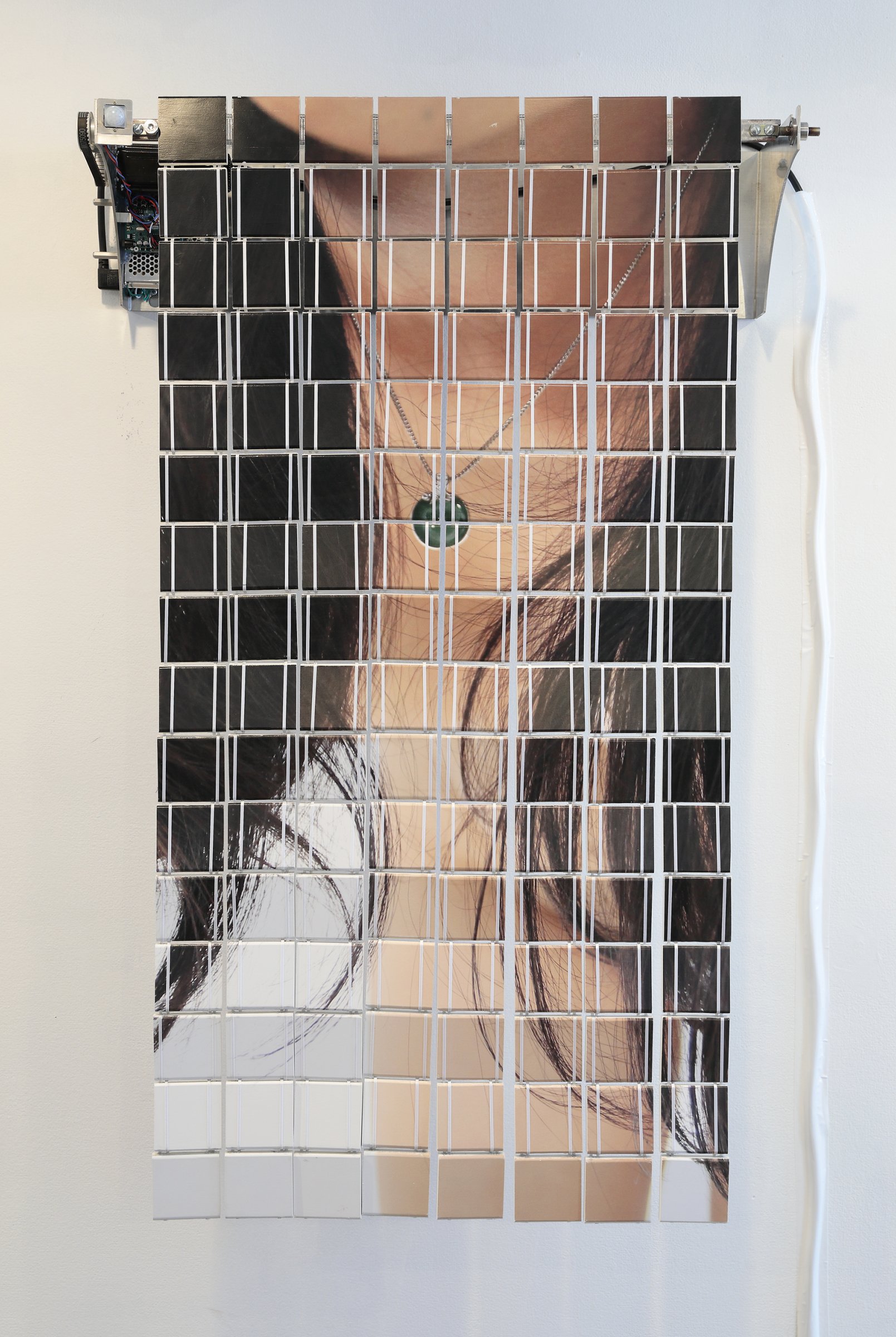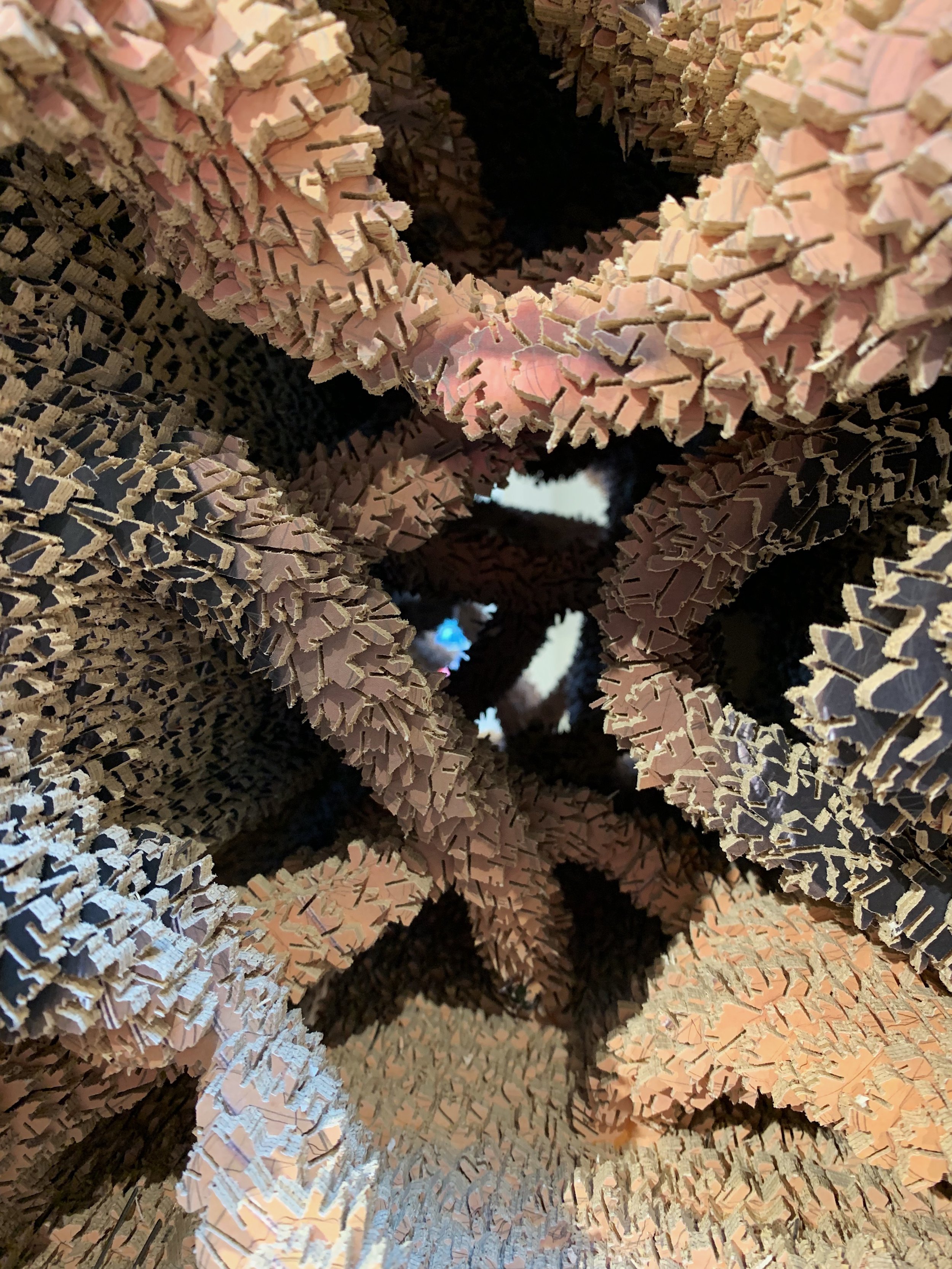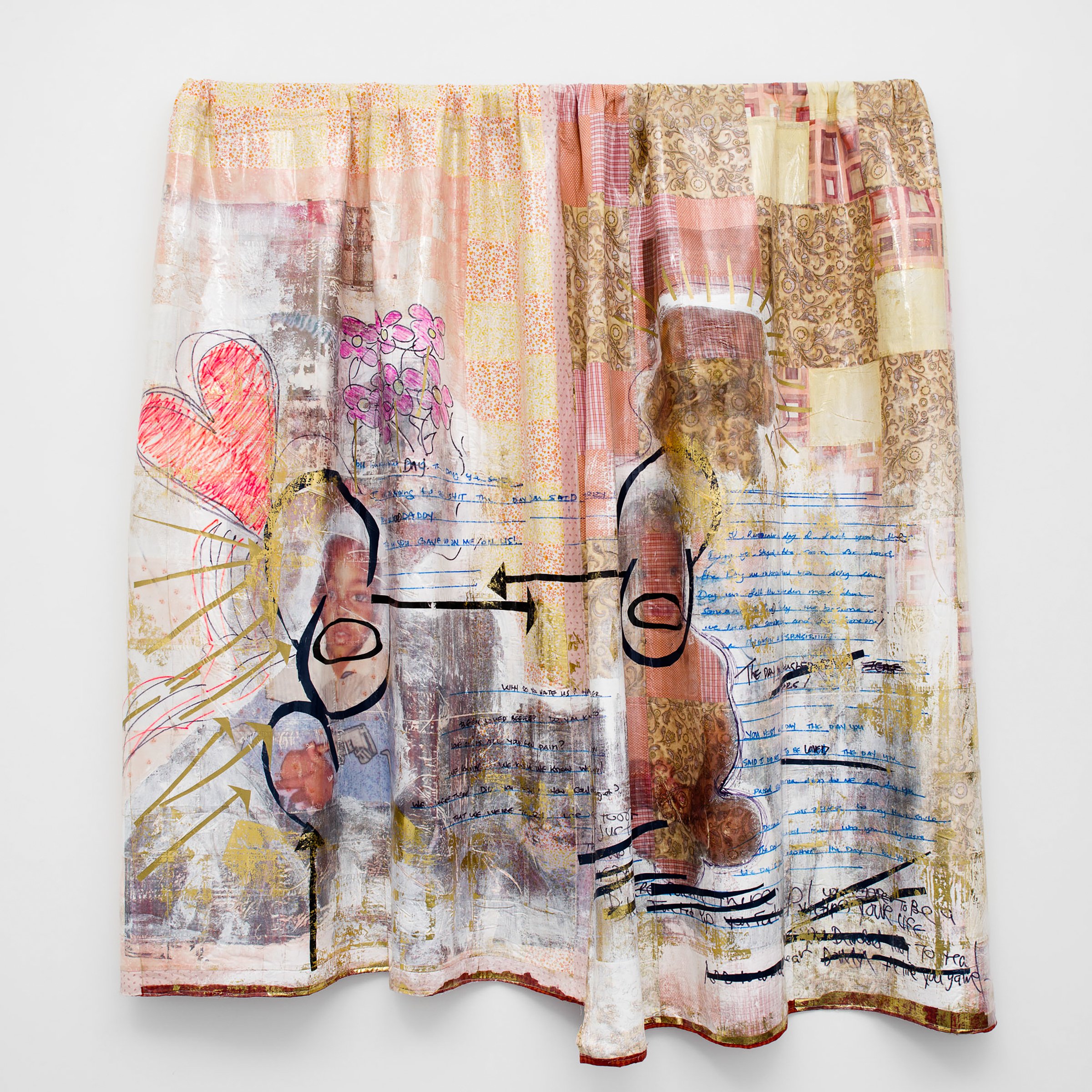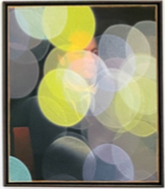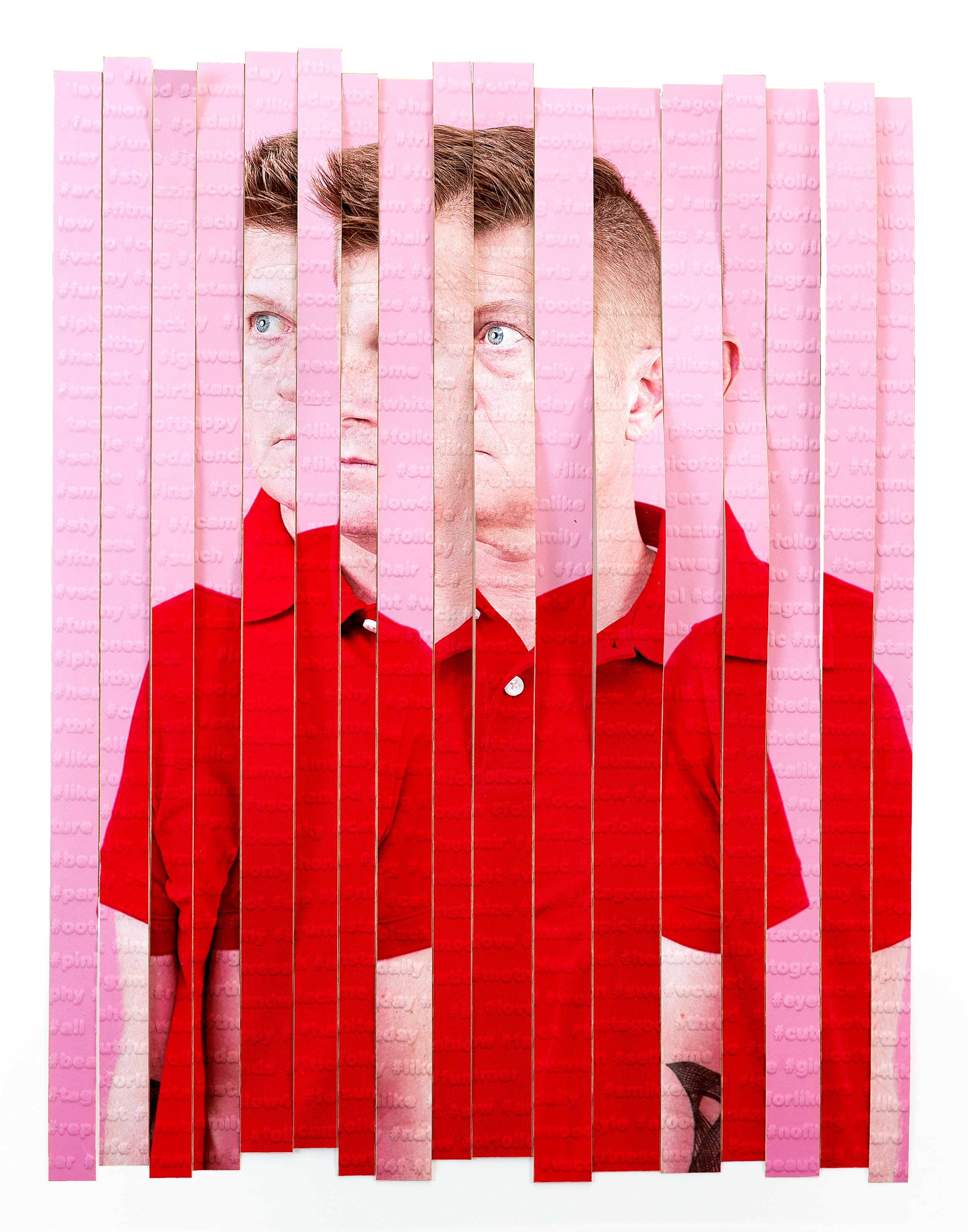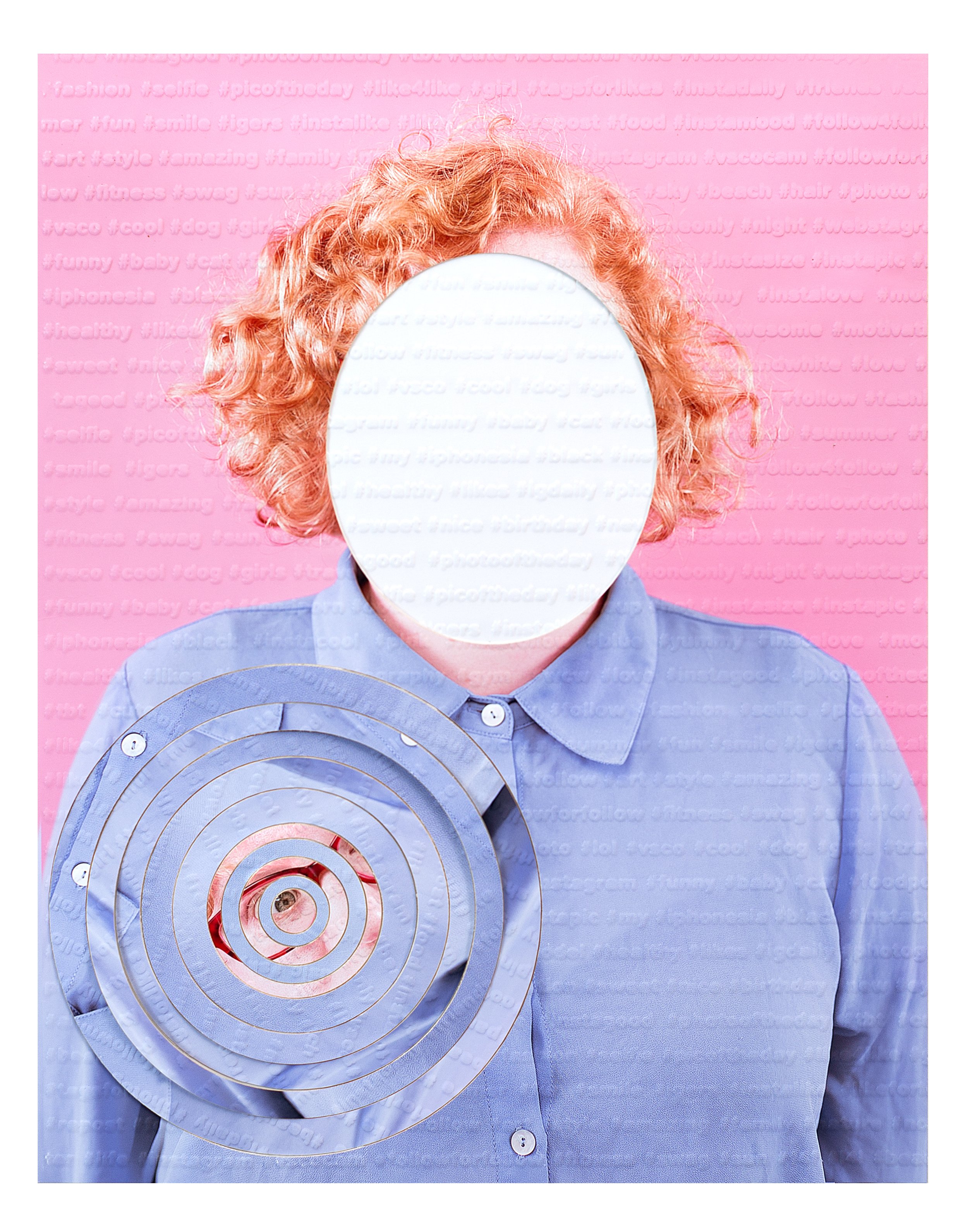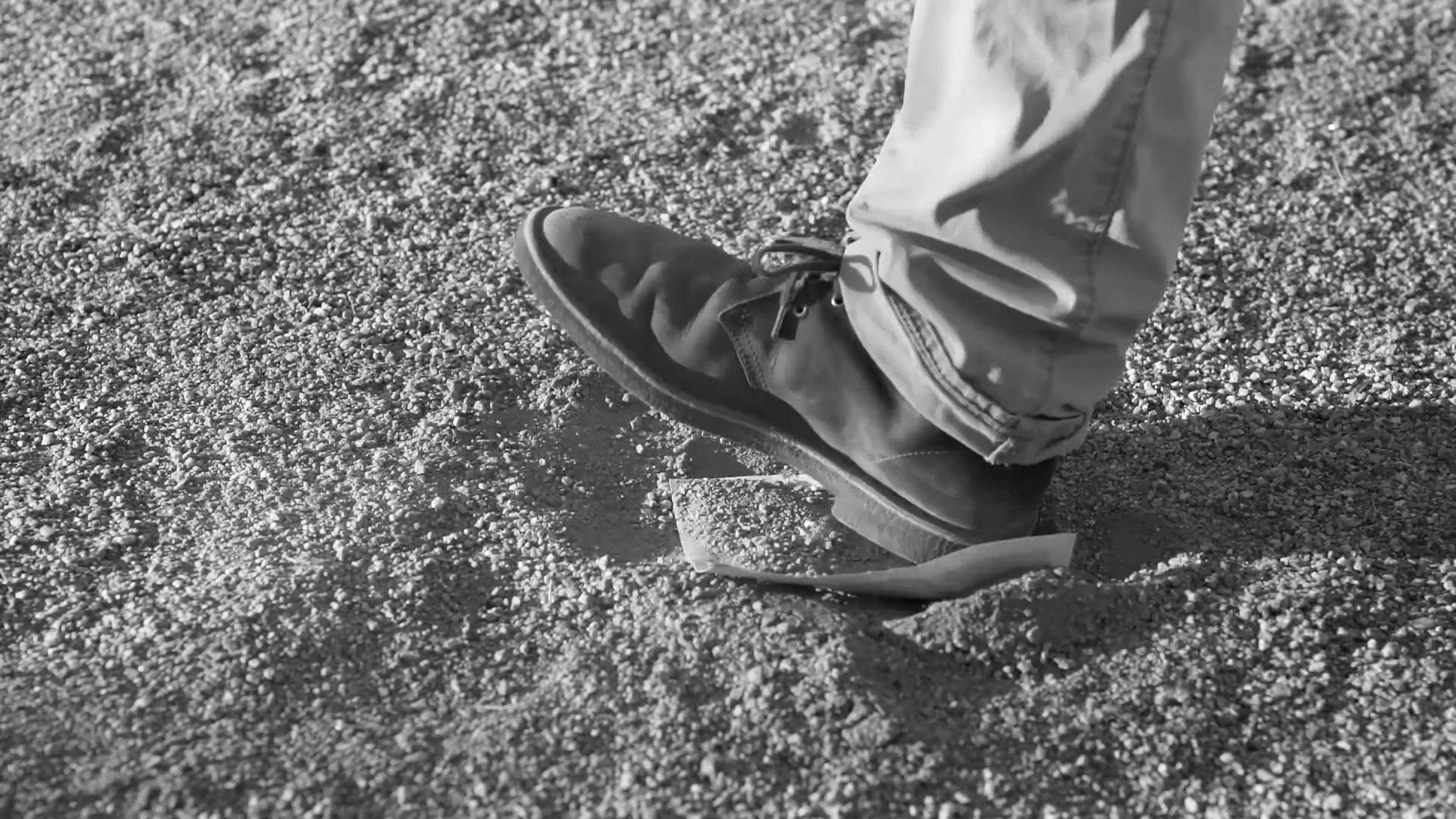
(de)constructed:
exploring the altered photograph
MORGAN ASHCOM • CALEB COLE • VIVIAN CHIU • KENSUKE KOIKE • KAREN NAVARRO •
DREW NIKONOWICZ • PAUL STEPHENSON • STEPHANIE J. WOODS
January 7 – February 19, 2022
We're excited to kick off 2022 with a group exhibition, (de)constructed. The show brings together eight artists who physically and/or digitally alter their work by cutting, sculpting, and reconstructing the image using various materials.
(de)constructed showcases a range of subtle and forceful transformation techniques using materials such as fabric textiles, 3D printed tapestries, anonymous photographs, wooden sculptural objects, interactive videos, vintage magazines, postcards, and paintings by other artists.
Artists featuring work in the exhibition include Morgan Ashcom, Vivian Chiu, Caleb Cole, Kensuke Koike, Karen Navarro, Drew Nikonowicz, Paul Stephenson, and Stephanie J. Woods.
Vivian Chiu, Remote (self-portrait)
Kinetic Photographic Sculpture
50” x 10” x 32”
Vivian Chiu, Screen
Last-Cut Acrylic on Vinyl
10’ x 4’
Vivian Chiu, Dancer (self-portrait)
Archival Pigment Print
48 x 82 inches
Vivian Chiu, Touch (self-portrait)
Archival Pigment Print
48 x 82 inches
Vivian Chiu, Self IV
Birch Plywood, Laser Print, Aluminum
65" x 11" x 36"
Vivian Chiu, Self IV
BLOG FEATURE: VIVIAN CHIU
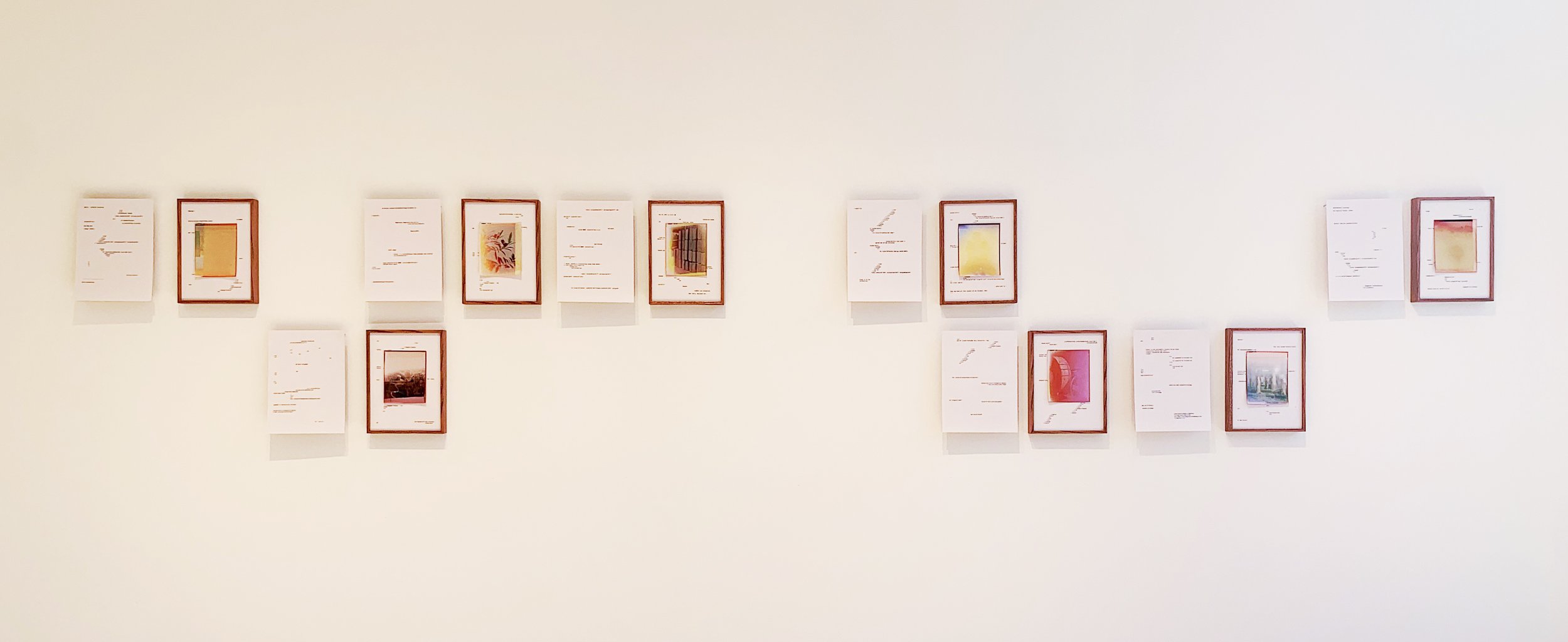
Morgan Ashcom
From the series Open
Open is a series of 34 6”x8” framed photo-text pieces. The c-prints are printed from 4”x5” negatives I made in Palestine in 2009. At the end of my visit, chance intervened when my box of unprocessed film was opened by Israeli security. The negatives were exposed to fluorescent light–obscuring the images. The text is from the html code of emails between the Palestinian organizer Wajdi Yaeesh and various financial institutions during a 2021 fundraiser we created for his organization, Human Supporters. Half the donations were returned to donors while Wajdi was subject to weeks of bad-faith requests for evidence to verify his identity amidst a surge of Israeli state violence. Together the text and images ask the impossible–for a Palestinian to prove their identity in the midst of cultural and ethnic erasure. The title refers both to the action of opening my film box and the antithesis of the closed off borders and global awareness imposed by the Israeli occupation. These works do not claim to carry the burden of proving anything written above. Instead they are fictions coauthored during the collision of my negatives with the Israeli apartheid state and the experience of a tenacious Palestinian organizer.
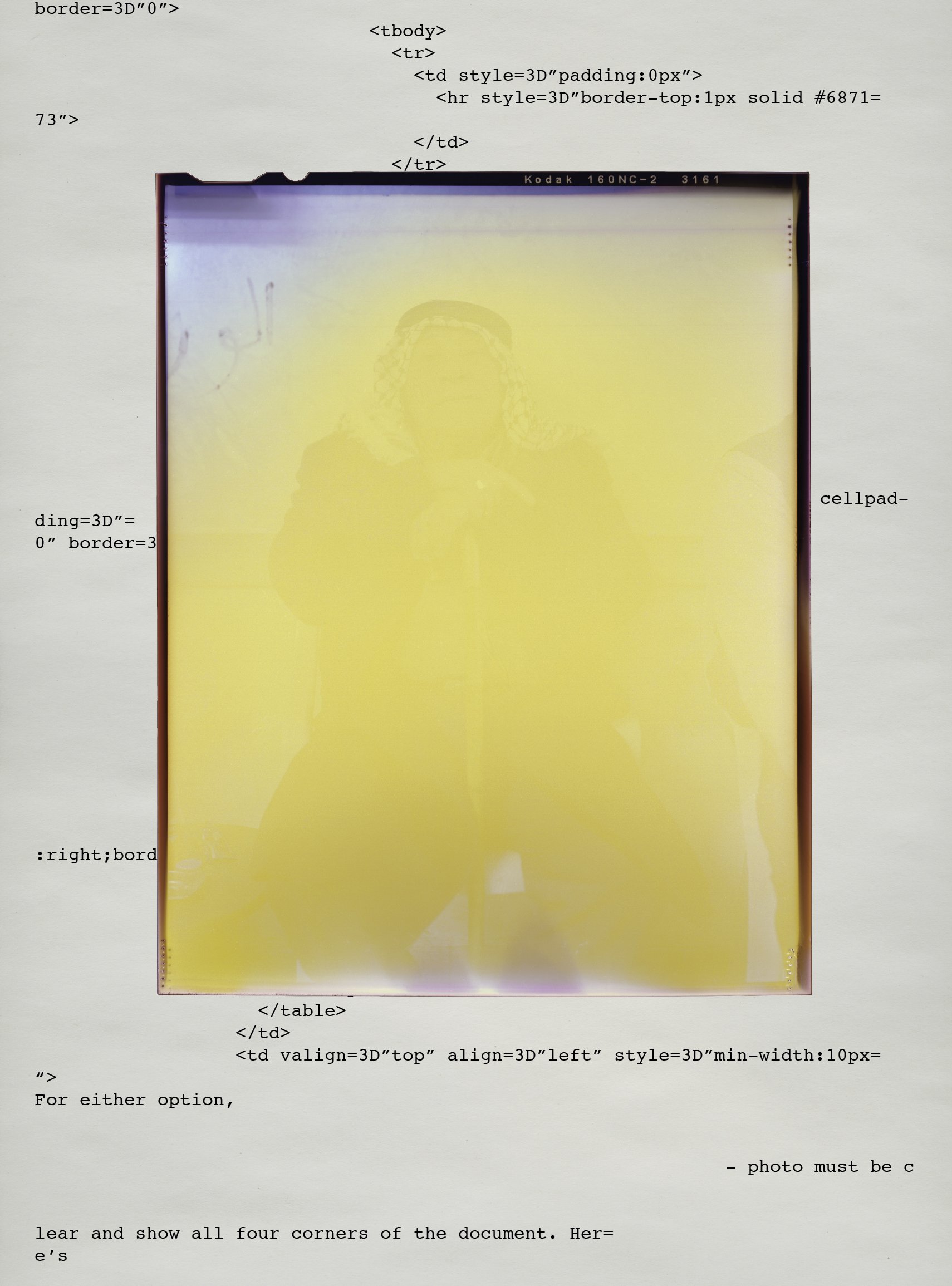
Morgan Ashcom, Open #33
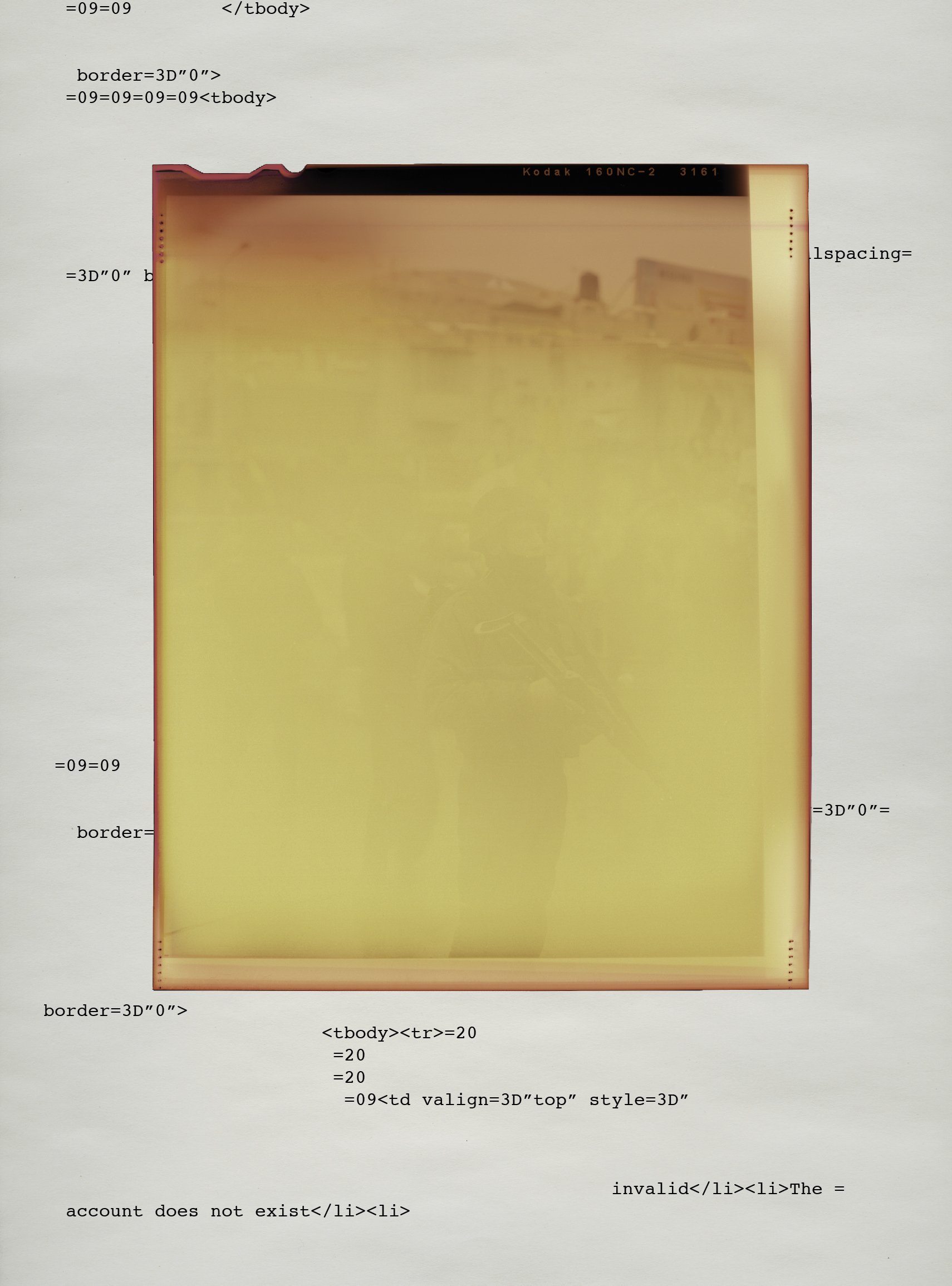
Morgan Ashcom, Open #27
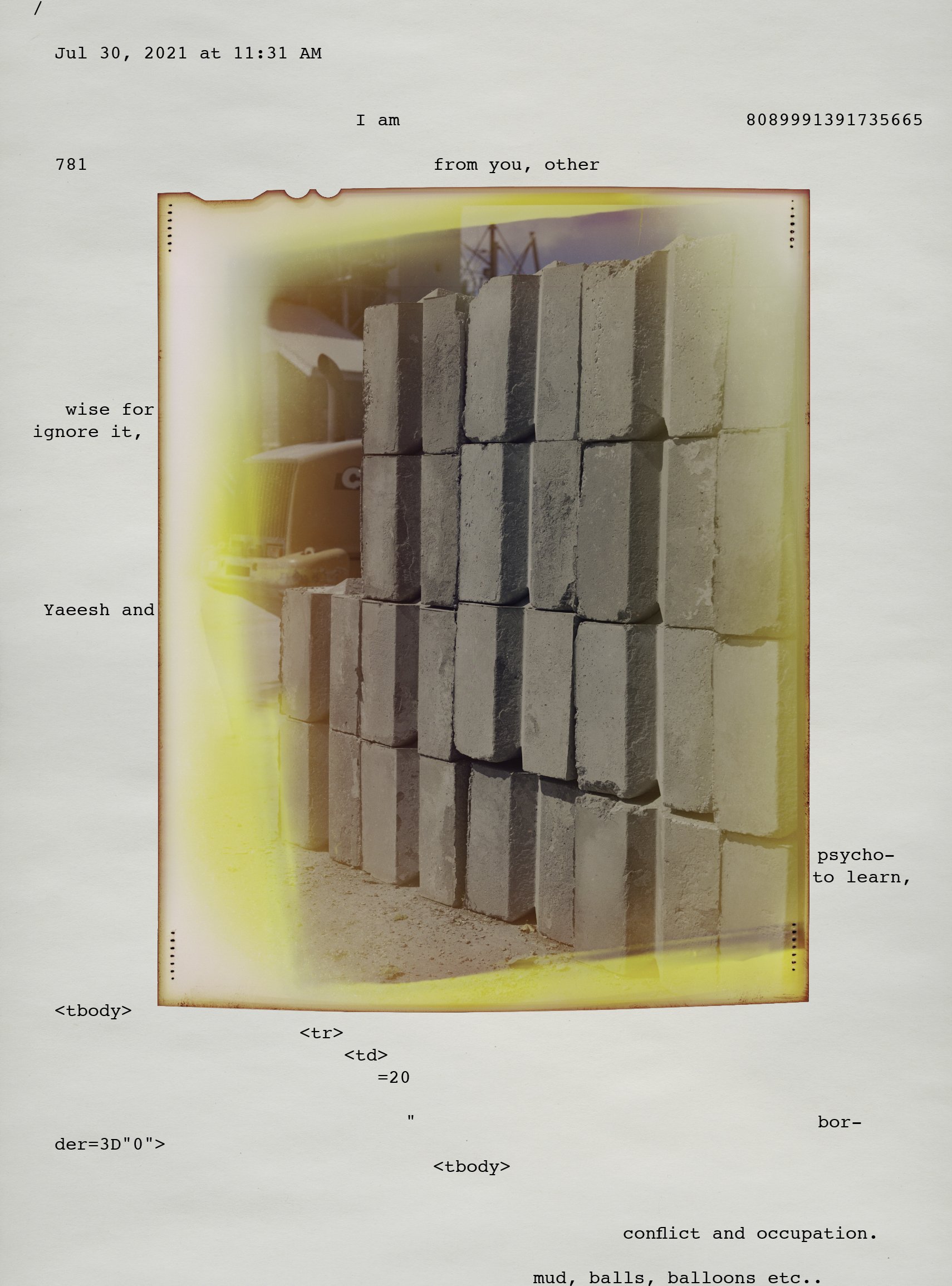
Morgan Ashcom, Open #35
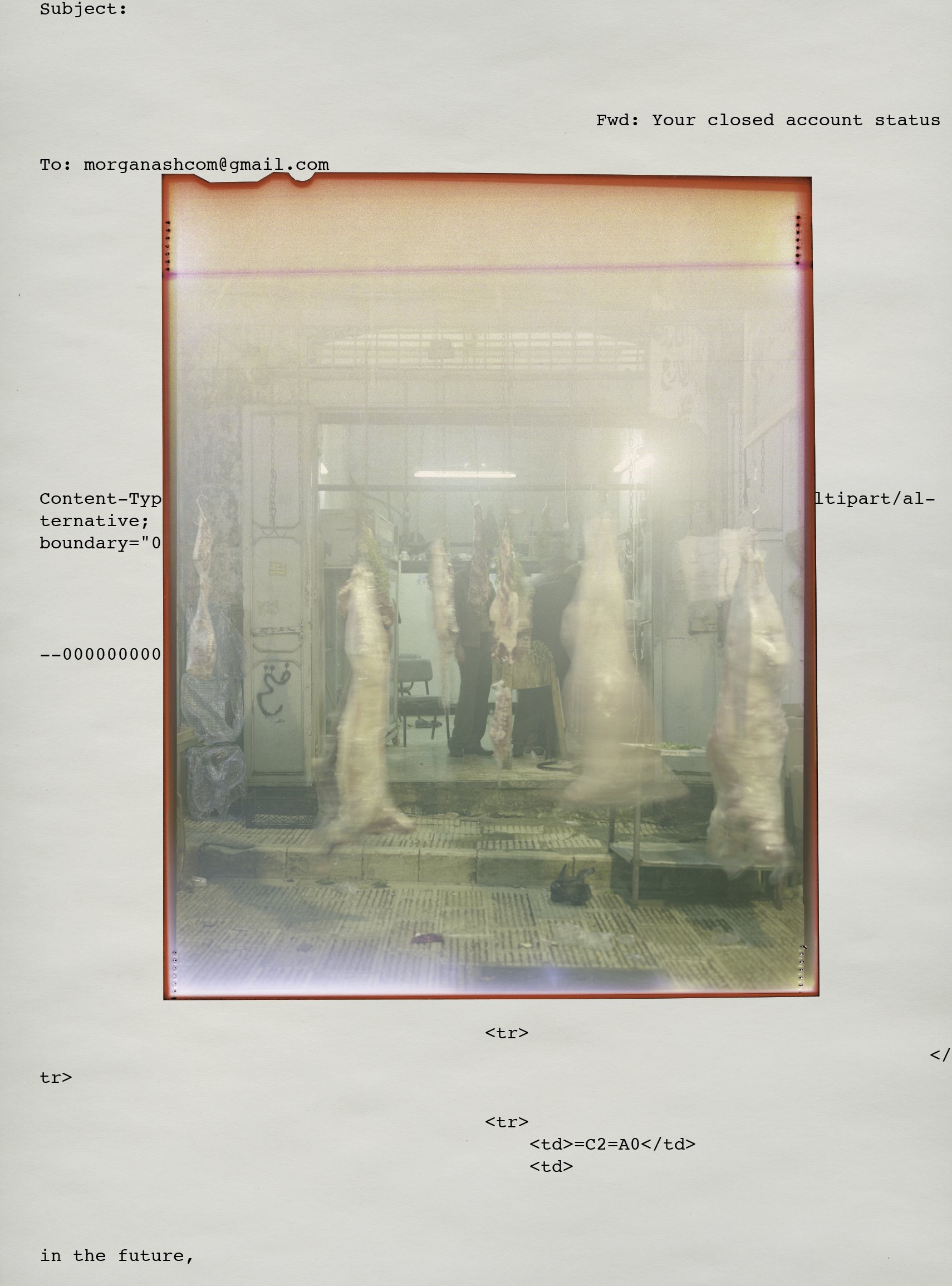
Morgan Ashcom, Open #47
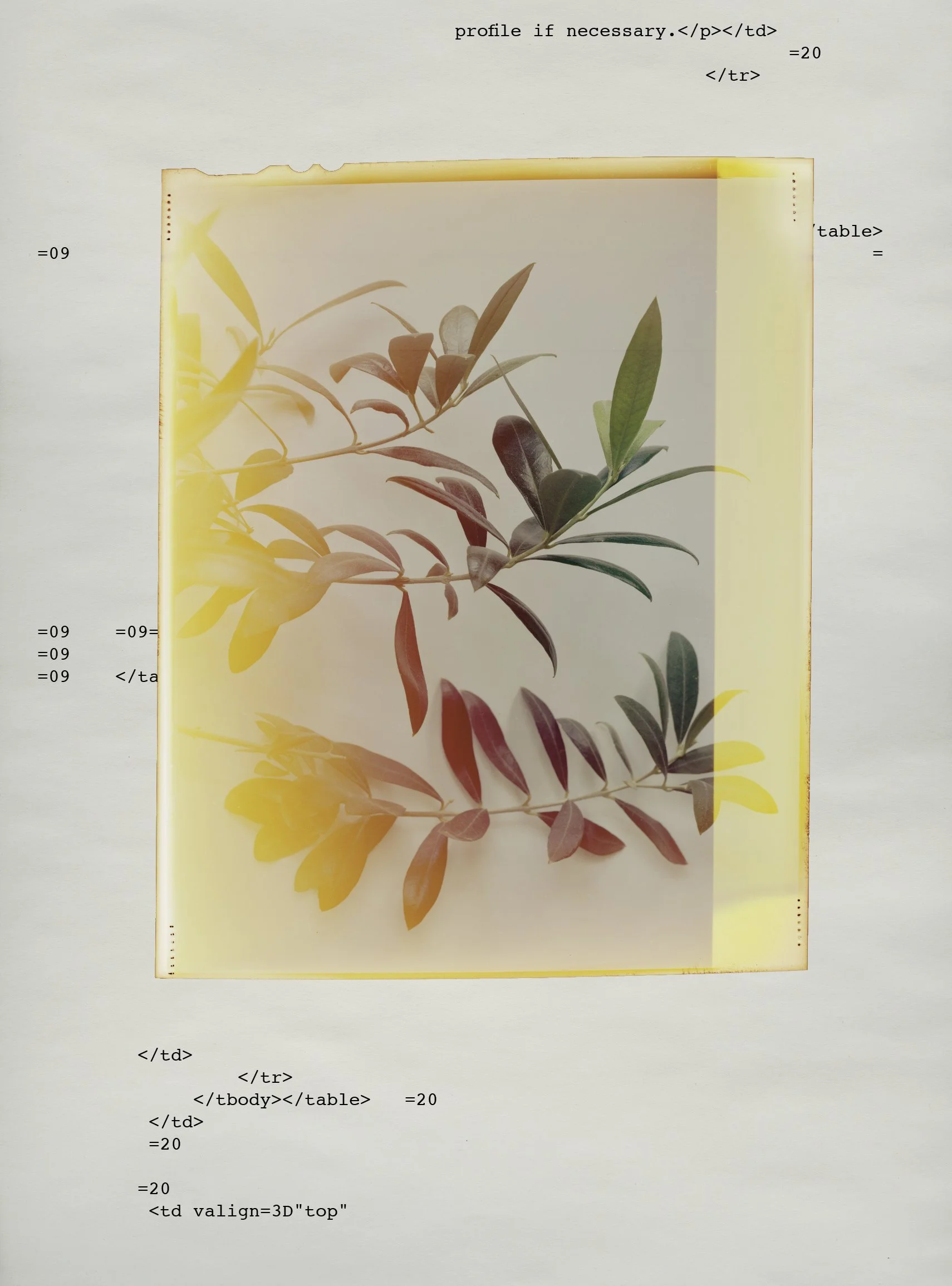
Morgan Ashcom, Open #49
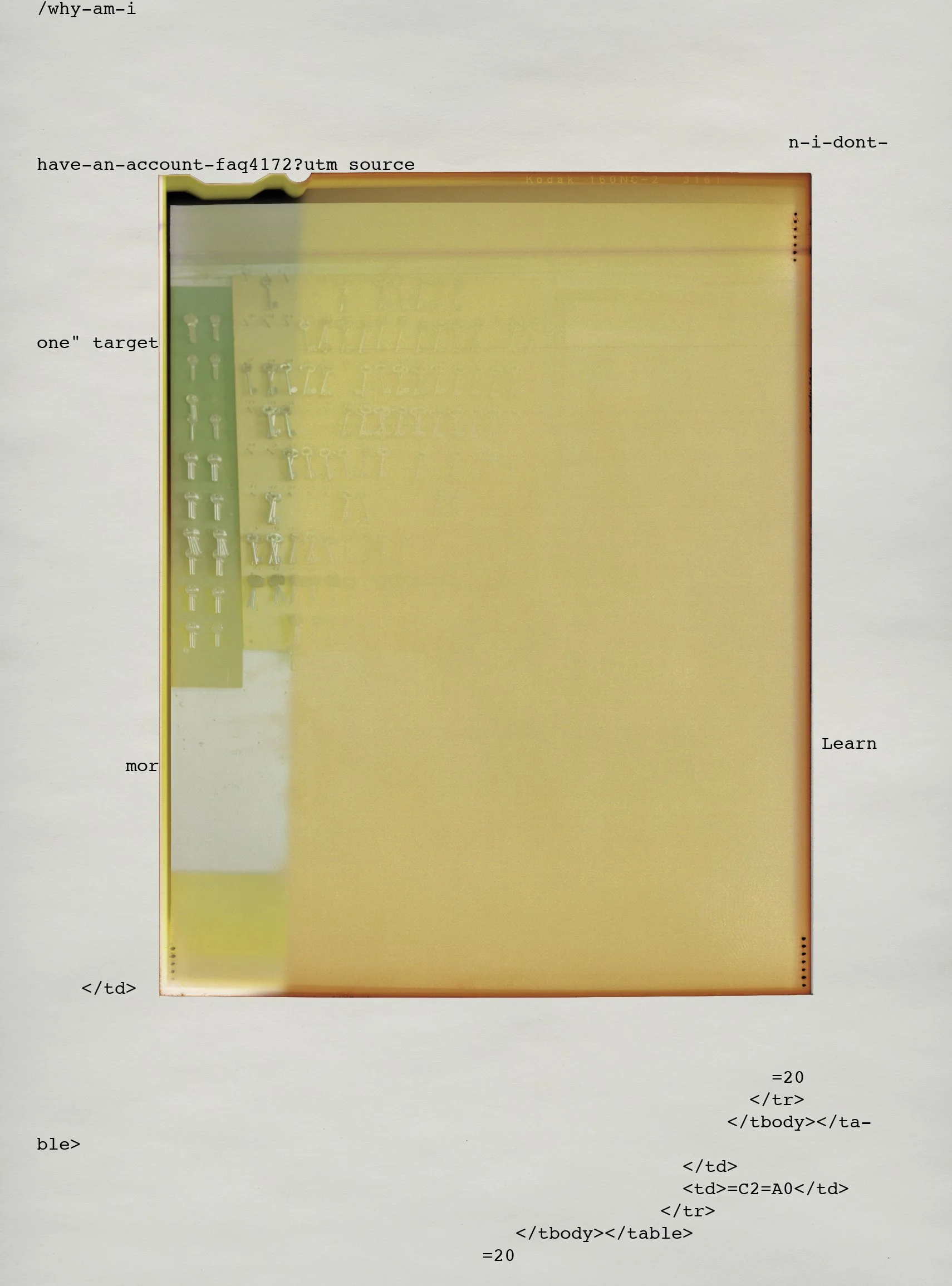
Morgan Ashcom, Open #53
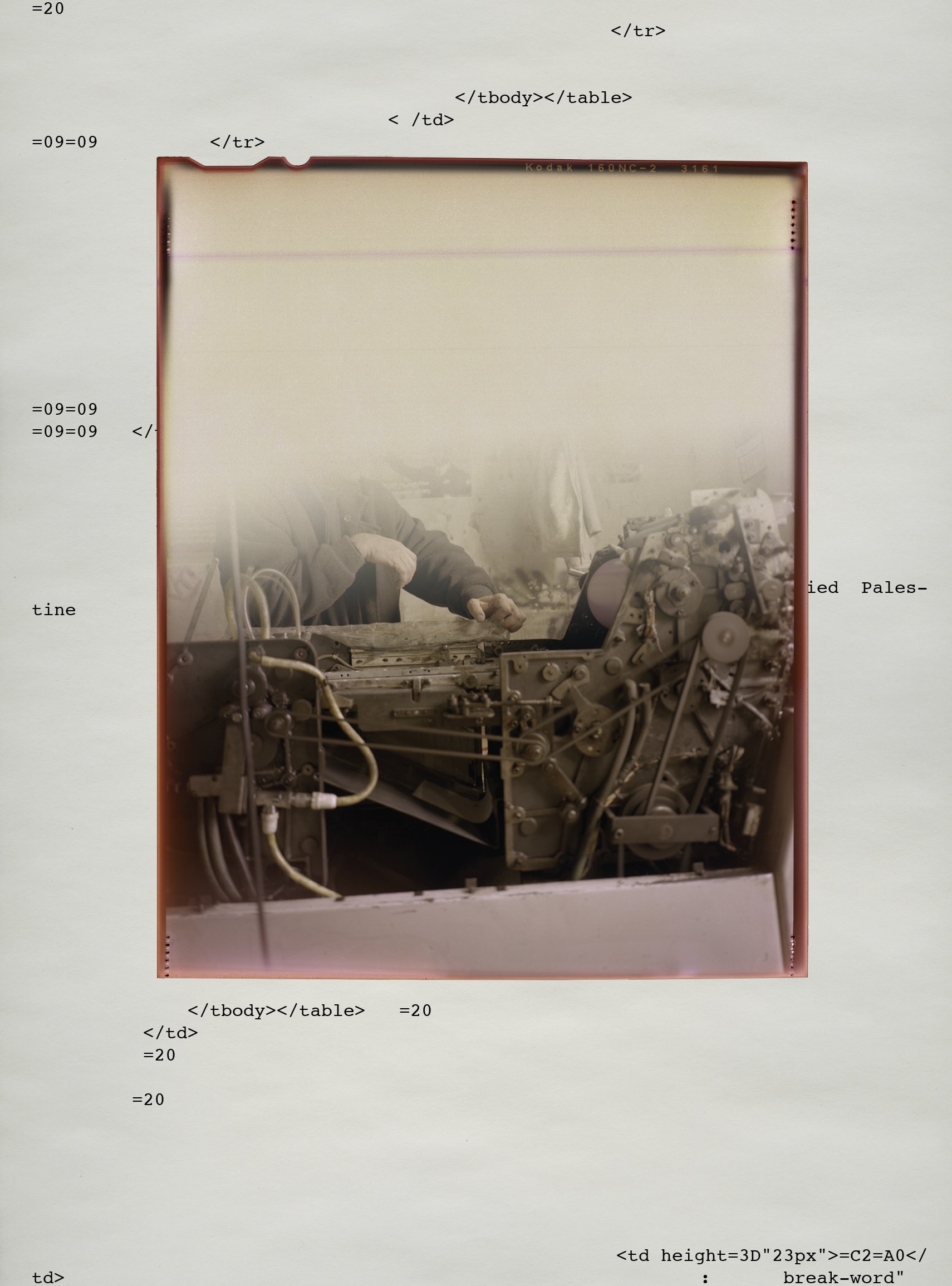
Morgan Ashcom, Open #55
Stephanie J. Woods, What Glitters Ain’t Always Gold I
Family Photos Transferred onto Hand-Cut & Sewn Quilt Tops, Textile Foil, Heat Transfer Vinyl, Sharpe, Textile Paint, and Polished Furniture Vinyl
5.5’ x 5’ x 8”
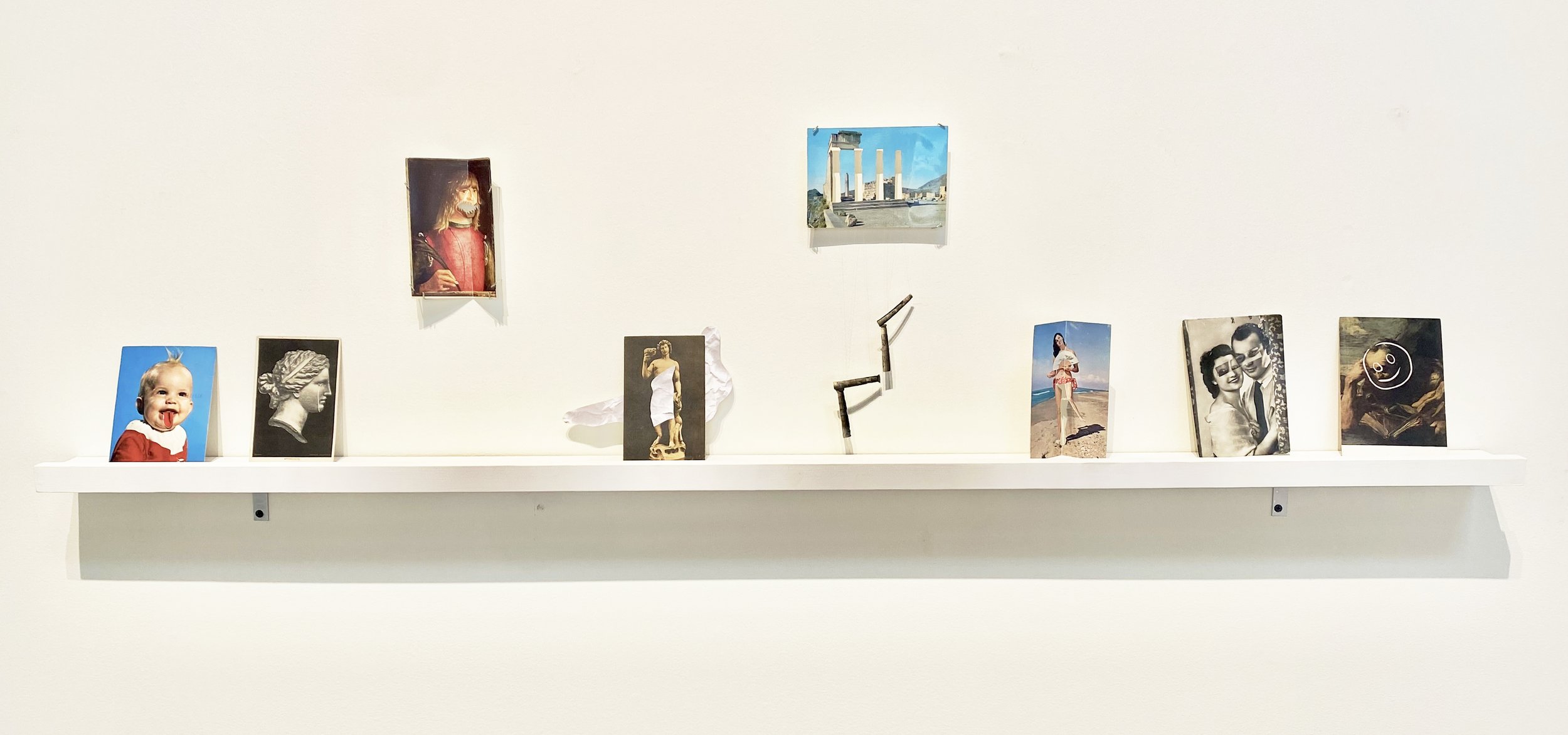
KENSUKE KOIKE
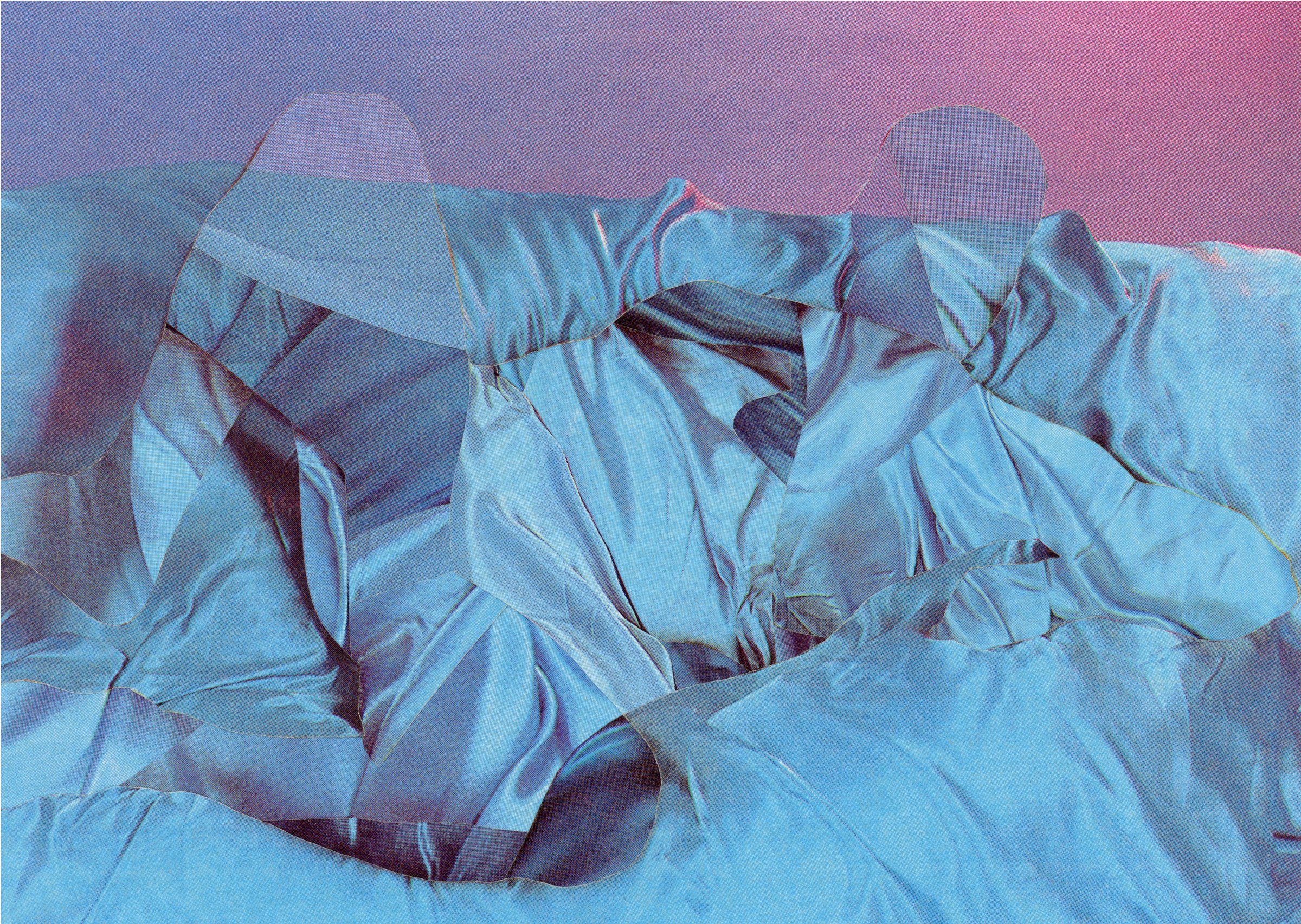
CALEB COLE
The photographs in Traces began as pictorials in gay men’s magazines from the 1980s and 1990s, at the height of the AIDS epidemic. Men’s bodies exposed, on display, are then excised and replaced by hand with pieces of other images in the sequence. Tracing the edges of their bodies with a blade is both tender and violent, and the resulting images leave marks of absence that weigh heavy with loss. The work explores what it means to be seen, to be vulnerable, and speaks to access and interest in queer and trans bodies, gendered notions of desire, and the pieces of ourselves that we hide from view. [source]
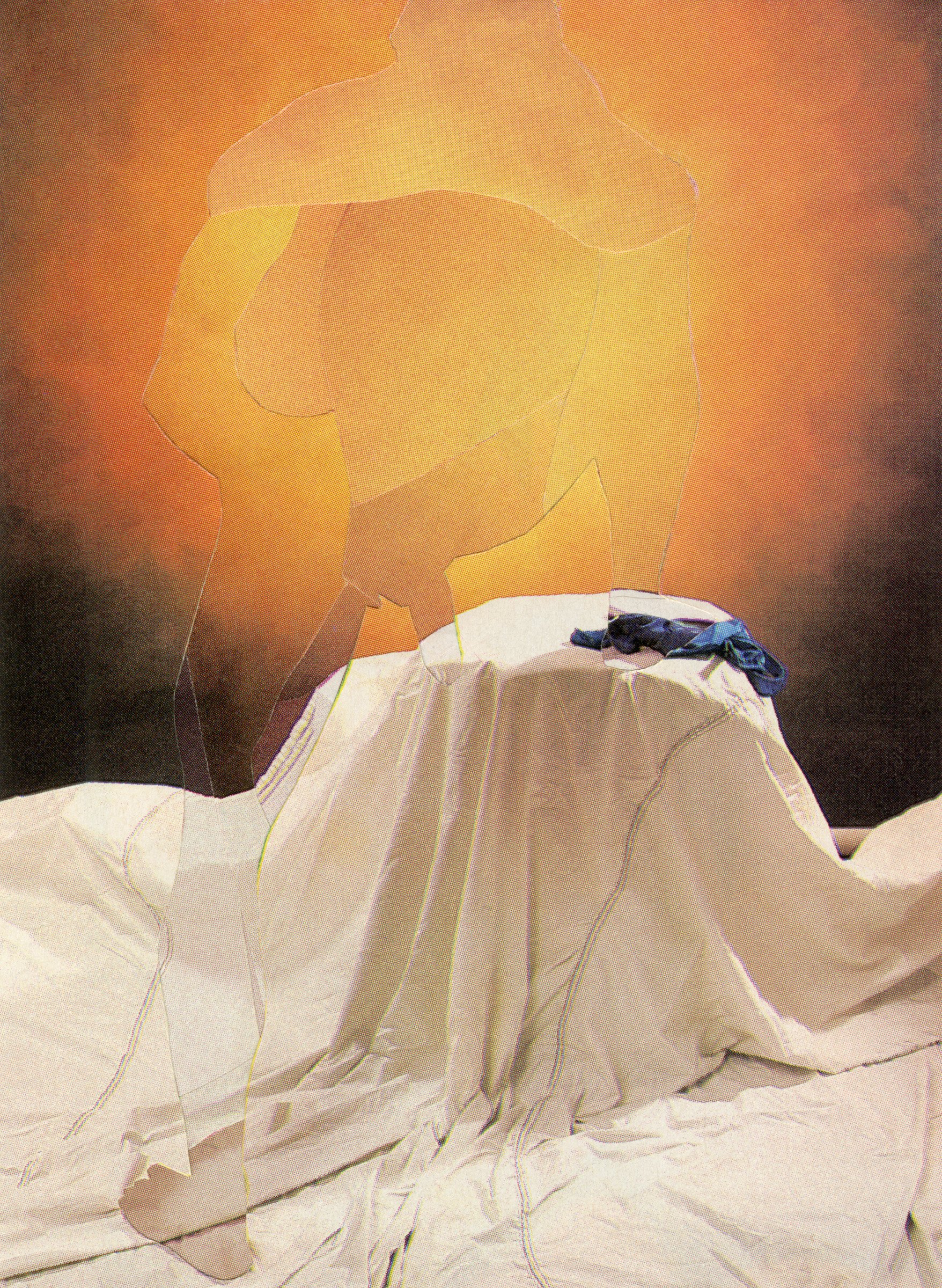
Caleb Cole, Orange Studio, from the series, Trace
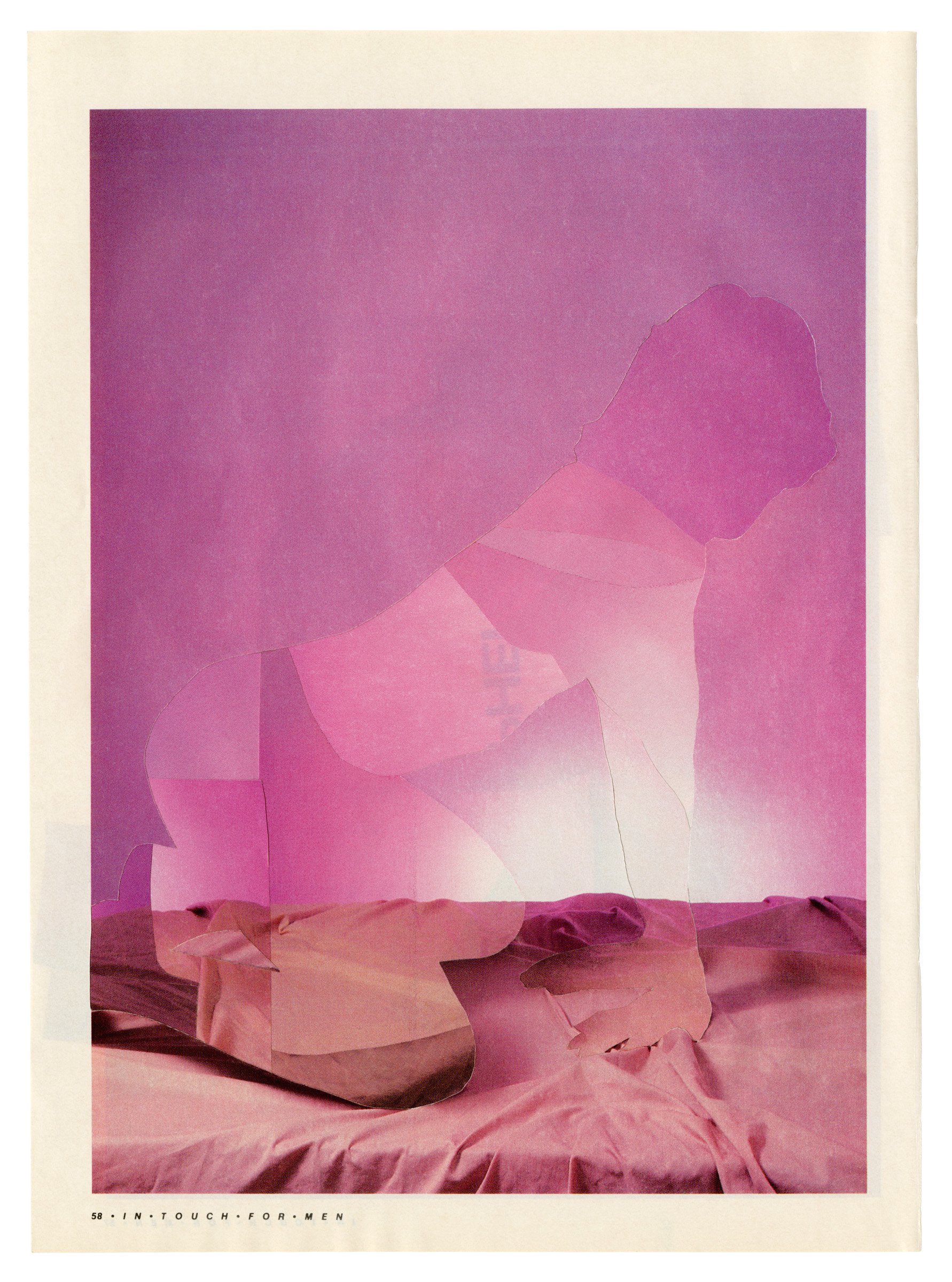
Caleb Cole, Pink Sheets, from the series, Trace
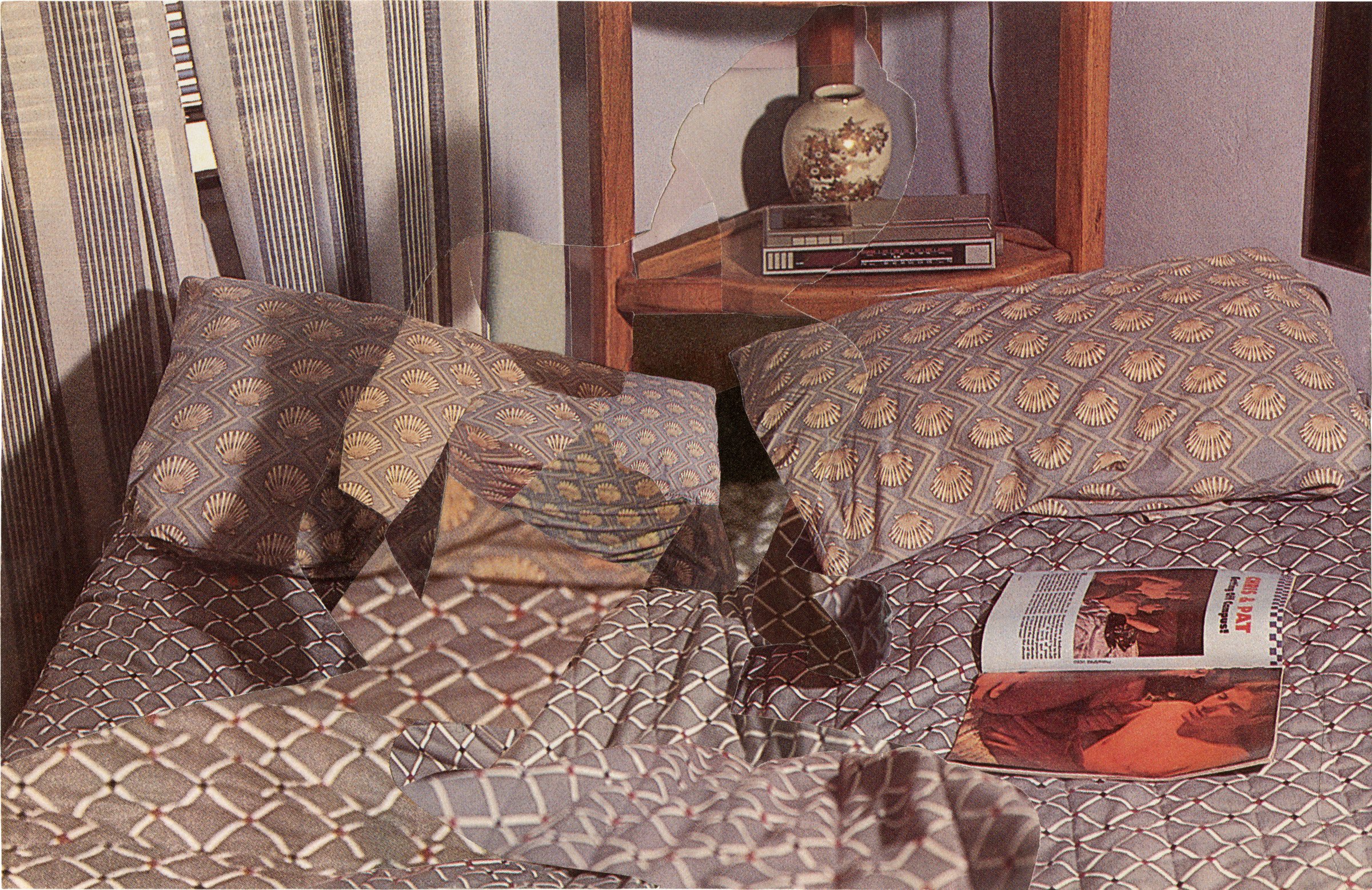
Caleb Cole, Magazine, from the series, Trace
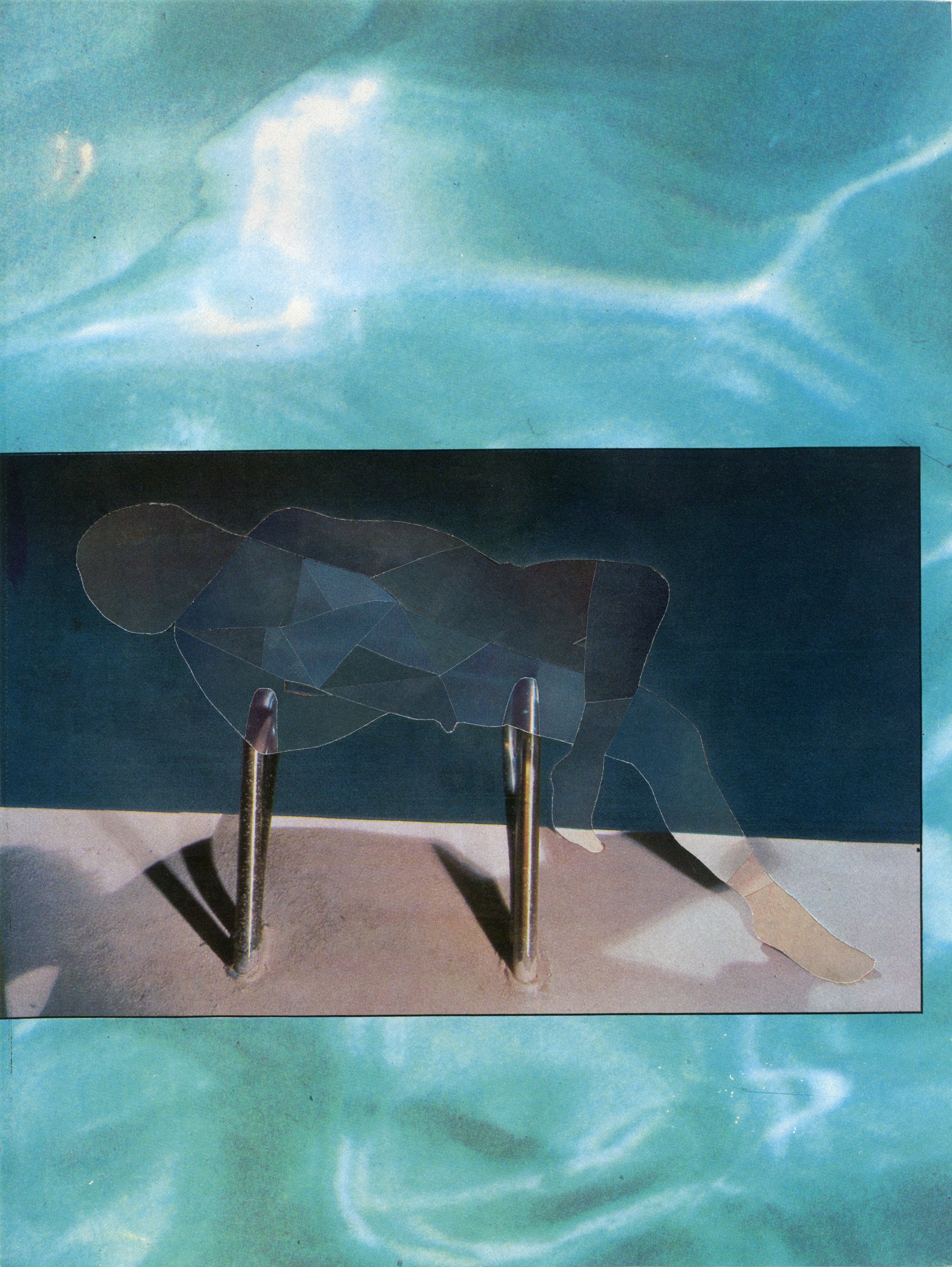
Caleb Cole, Pool Ladder, from the series, Trace

Caleb Cole, Satin Sheets, from the series, Trace
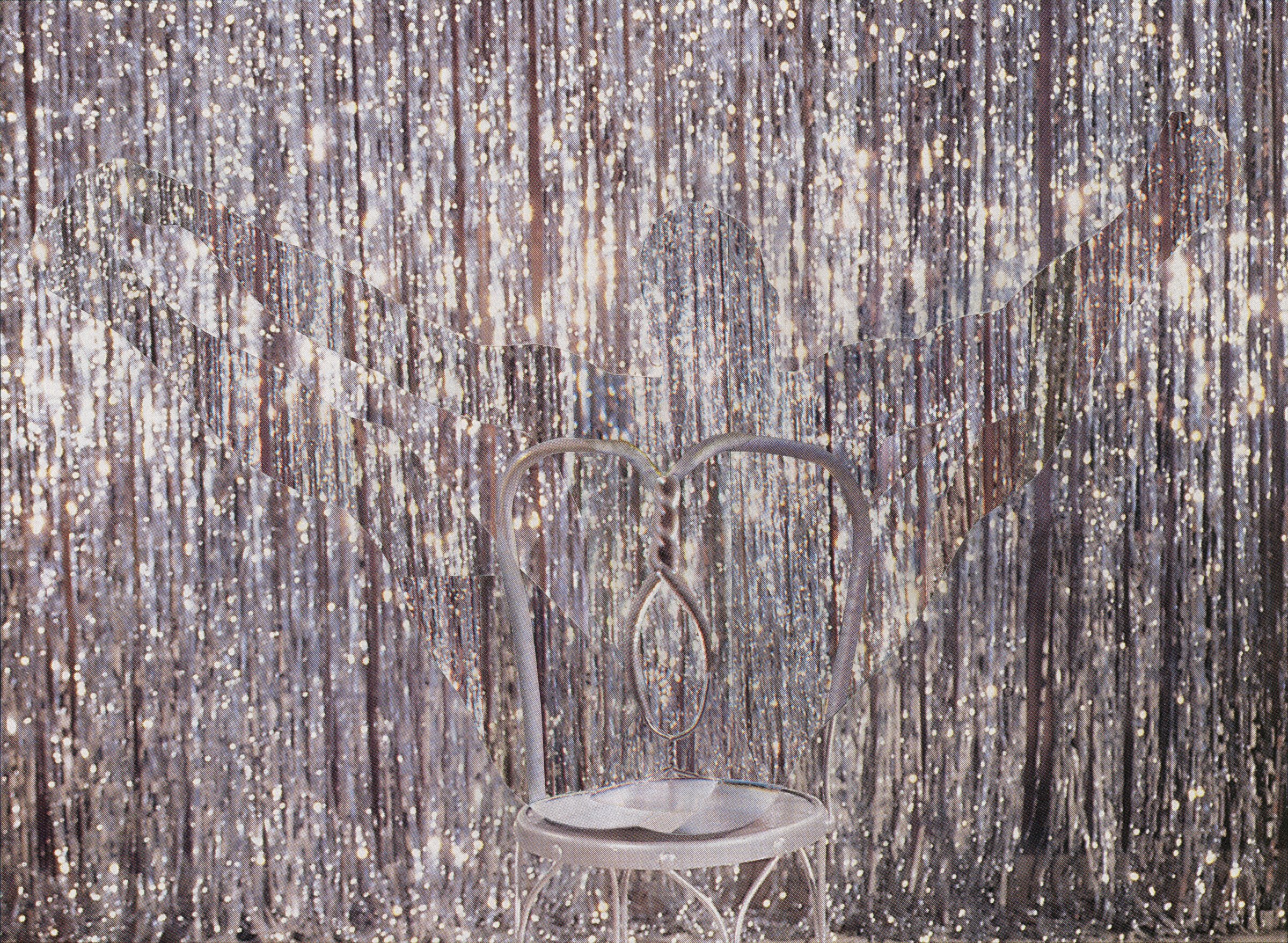
Caleb Cole, Silver Curtain, from the series, Trace
Paul Stephenson, from the series, Fireworks on Three Gentlemen, 2019 and 1820
Paul Stephenson, Reflection on Dutch Lady, 2021 and c.1830. Collaboration on Northern European School painting (study), 30 x 23.5 inches
Karen Navarro, Rearranged ll, from the series, The Constructed Self
Archival Inkjet Print, Wood, Acrylic Paint, Epoxy, 32 x 30.5 inches
Karen Navarro, Subject #4 variation 2
Laser-Cut Embossed Archival Inkjet Print, 11 x 14 inches
Karen Navarro, Subject #15 variation 1
Laser-Cut Embossed Archival Inkjet Print, 11 x 14 inches
Karen Navarro, Subject #7 variation 3
Laser-Cut Embossed Archival Inkjet Print, 11 x 14 inches
Karen Navarro, Subject #16
Laser-Cut Embossed Archival Inkjet Print, 11 x 14 inches

